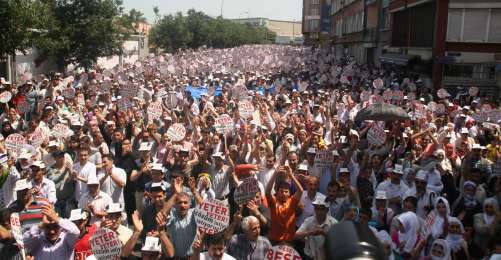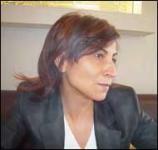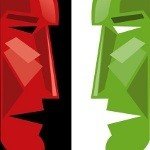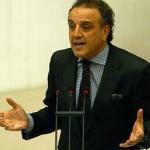Speaking at the "Dialogue for a Solution" conference held at Bilgi University by the Turkey Peace Parliament on 6 June, Prof. Dr. Fuat Keyman, from the department of International Relations at Koç University, spoke about the necessity for identity politics to include social justice.
As the effects of the economic crisis are being felt, poverty and exclusion need to be addressed, he said.
The academic argued that if identity politics and social justice were merged in a programme, then the pro-Kurdish Democratic Society Party (DTP) and the opposition Republican People's Party (CHP) may start speaking the same language.
Prof. Dr. Gençay Gürsoy, president of Turkey's Medical Association (TTB), also argued that the CHP could be a "key player" in a peace process. The CHP, so Gürsoy, was a party which knew "state codes" very well, and any steps taken by that party may be followed by the government.
He described having met with CHP leaders in order to discuss a solution to the Kurdish problem and a peace process, and they agreed with him, but told him to speak with Deniz Baykal, the party's chairman.
According to Keyman, the PKK was the main actor in the 1990s, but there has been a change in the 2000s. He predicted that the years after 2010 would be "years without the PKK" and called on NGOs and academics to prepare for this time.
He added that the address for dialogue should not be the PKK or its imprisoned leader Abdullah Öcalan, but the DTP.
Keyman added the following points:
Risk of society disintegrating: The state has given up on assimilation. The political, economic and social costs of the problem have been very high, and the state has realised that. However, instead of assimilation we currently do not have coexistence, but the danger of dissolution.
2000s: There have been many changes in recent years. The EU accession negotiations, September 11, the occupation of Iraq, the formation of a regional Kurdistan government in Northern Iraq and the economic growth in Turkey between 2000 and 2008 have all changed parametres. The Kurdish issue has become an urban issue. With professional networks, NGOs and Kurdish intellectuals, the number of actors has increased.
After 2008: As well as feeling the effects of the economic crisis, we are also feeling the construction of US hegemony as a "soft power" with the election of Obama. (TK/AG)













